
13-02-2026 03:30
Hello! I found these immersed perithecia on a stic

12-02-2026 21:34
patrice CallardBonjour, la face inférieure des feuilles ce certa

11-02-2026 22:15
 William Slosse
William Slosse
Today, February 11, 2026, we found the following R

12-02-2026 14:55
Thomas Læssøehttps://svampe.databasen.org/observations/10581810

11-02-2026 19:28
 Lothar Krieglsteiner
Lothar Krieglsteiner
on small deciduous twig on the ground in forest wi

25-04-2025 17:24
Stefan BlaserHi everybody, This collection was collected by J�

10-02-2026 17:42
 Bernard CLESSE
Bernard CLESSE
Bonjour à toutes et tous,Pourriez-vous me donner

10-02-2026 18:54
Erik Van DijkDoes anyone has an idea what fungus species this m

09-02-2026 20:10
 Lothar Krieglsteiner
Lothar Krieglsteiner
The first 6 tables show surely one species with 2
On Populus outer bark
Elsa Sousa,
04-07-2017 23:15
Spores:
(57.1) 58.4 - 67 (72.9) × (14.9) 15.9 - 20.4 (21.2) µm
Q = (2.9) 3.2 - 3.9 (4.4) ; N = 16
Me = 63.6 × 17.8 µm ; Qe = 3.6
multiseptate and guttulate.
I would appreciate any help.
Thank you very much.
Regards,
Elsa
Gernot Friebes,
04-07-2017 23:18
Re : On Populus outer bark
Hi Elsa,
I would look around Navicella.
Best wishes,
Gernot
I would look around Navicella.
Best wishes,
Gernot
Elsa Sousa,
04-07-2017 23:46
Re : On Populus outer bark
Thank you Gernot, I don't find any description or keys for Navicella. Spores are very close to Navicella pileata (the only one I find something about), but I don't know if it could be this one, could it be?
Elsa
Elsa
Klaus Siepe,
07-07-2017 10:32
Re : On Populus outer bark
Hi Elsa, the only key I know is in M.E.Barr's "North American flora. Series II". But key is a great word for two species. There seems to be another species, N. xinjiangenis, described by Yuan & Zhao (1994) from China. It seems to be close to N. pileata and N. elegans, but has narrower and longer asci [(95-)150-265(-300) x (16)-20-30(-40) in N. pileata vs. 287-355 x 14,3-17,5 µm and narrower ascospores: 47,5-62,5 x 10-12,5 µm, 5-7 (mostly 7) septate.
Regards,
Klaus
Regards,
Klaus
Elsa Sousa,
08-07-2017 20:19
Re : On Populus outer bark
Thank you Klaus for your explanation and keys. With this I think that I can call it N. Pileata at least for now.
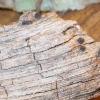
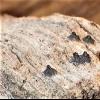
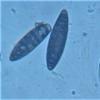
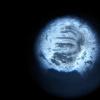
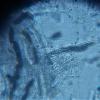
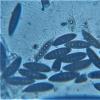
 Navicella-"Key"
Navicella-"Key"